- 0086-571-85302990
- sales@greenskybio.com
The Best Herbs for Treating Anxiety and Insomnia: Ginseng Root Extract
2024-11-14

Introduction
Anxiety and insomnia are two common health issues that can significantly impact an individual's quality of life. In recent years, there has been a growing interest in natural remedies to address these problems. Among the various herbs available, Ginseng Root Extract has emerged as a potential candidate with remarkable properties. This article aims to explore in detail why Ginseng Root Extract could be considered the best herb for treating anxiety and insomnia.
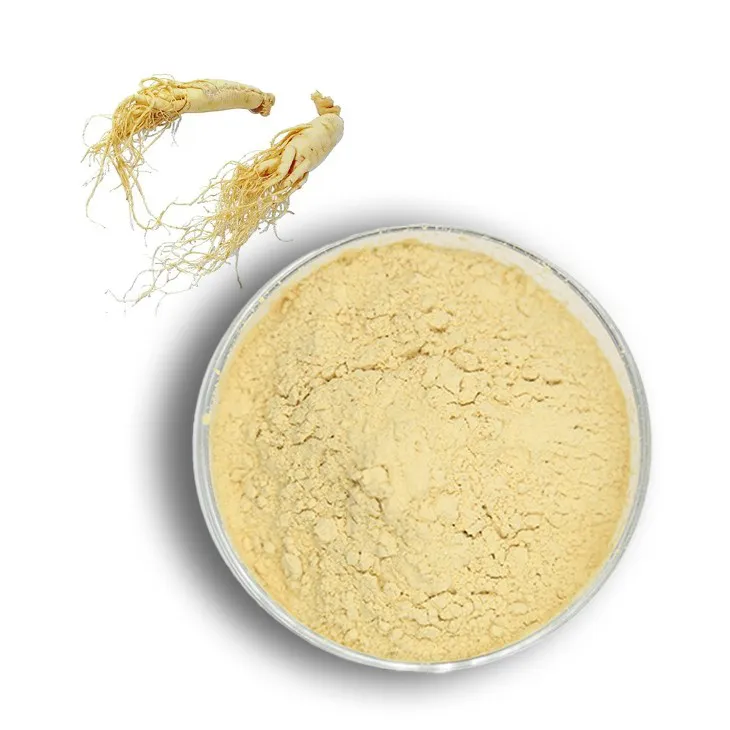
Traditional Use of Ginseng in Promoting Well - being
Ginseng has a long history of use in different cultures around the world for promoting overall well - being.
Asian Cultures
In Asian cultures, particularly in China, Korea, and Japan, ginseng has been used for centuries in traditional medicine. It was often regarded as a "cure - all" herb, believed to boost energy, enhance vitality, and improve mental clarity. In the context of anxiety and insomnia, traditional healers would prescribe ginseng to soothe the nerves and promote restful sleep. For example, in Chinese medicine, ginseng was used in formulations to balance the body's Qi (energy flow), which was thought to be disrupted in cases of anxiety and sleep disorders.
Native American Cultures
Native American cultures also had their own uses for ginseng. Although their understanding of the herb may have differed in some aspects from Asian cultures, they recognized its value in promoting health. Ginseng was used in various rituals and medicinal preparations, often with the intention of enhancing physical and mental strength, which could potentially have implications for reducing anxiety and improving sleep.
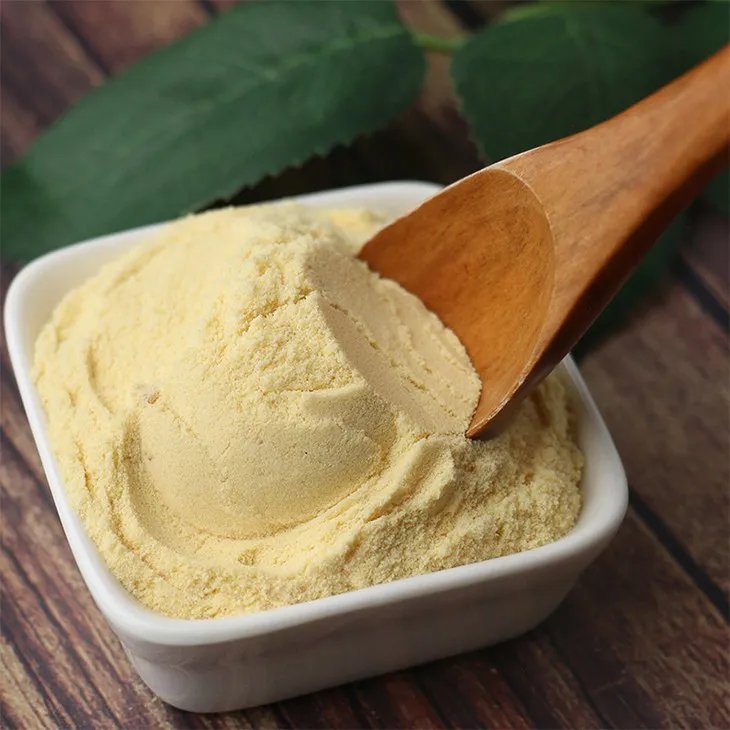
The Scientific Basis of Ginseng Root Extract for Anxiety and Insomnia
The effectiveness of ginseng root extract in treating anxiety and insomnia is not just based on historical use but also has a scientific basis.
Bioactive Components
Ginseng root extract is rich in a variety of bioactive components. One of the most important is ginsenosides. These are a group of steroid - like compounds that have been shown to have numerous physiological effects. Ginsenosides can interact with the body's hormonal system. For example, they may influence the hypothalamic - pituitary - adrenal (HPA) axis, which is involved in the body's stress response. By modulating the HPA axis, ginsenosides may help to reduce the excessive production of stress hormones such as cortisol, which is often associated with anxiety.
In addition to ginsenosides, ginseng root extract also contains other compounds like polysaccharides. These polysaccharides may have immunomodulatory effects, which can indirectly contribute to better mental health. A healthy immune system is crucial for maintaining proper brain function, and any disruptions in the immune system can potentially lead to mood disorders such as anxiety.
Neural Functions
Ginseng root extract may also affect neural functions related to relaxation and sleep induction. It has been suggested that ginseng can influence neurotransmitter levels in the brain. For instance, it may increase the availability of gamma - aminobutyric acid (GABA), which is an inhibitory neurotransmitter. Higher levels of GABA are associated with a state of relaxation and reduced anxiety. Additionally, ginseng may also have an impact on serotonin levels. Serotonin is often referred to as the "feel - good" neurotransmitter, and proper serotonin function is essential for regulating mood and sleep.
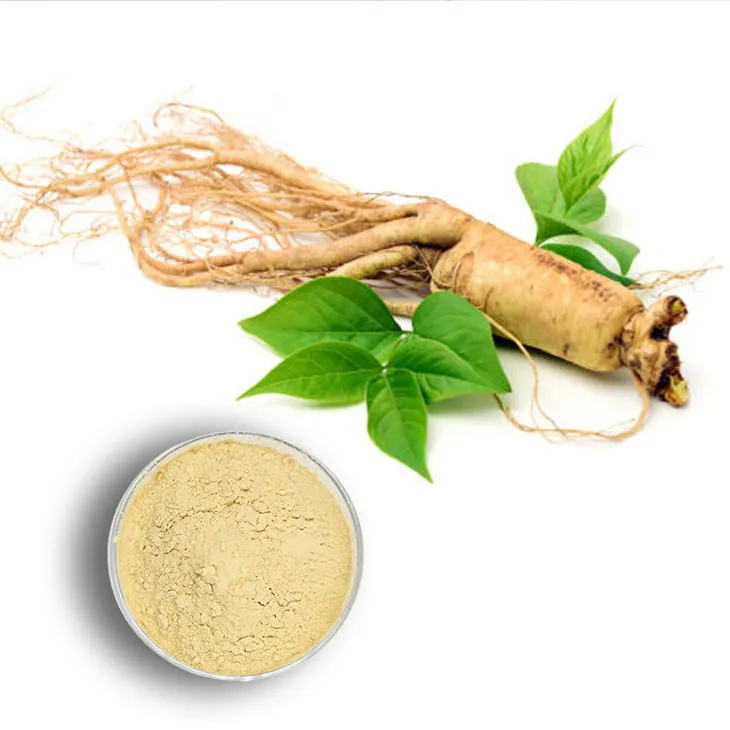
Different Forms of Ginseng Root Extract
There are several different forms of ginseng root extract available, each with its own characteristics.
Fresh Ginseng Extract
Fresh ginseng extract is obtained directly from freshly harvested ginseng roots. It contains a high concentration of bioactive components in their most natural state. However, it has a relatively short shelf - life and requires proper storage conditions, such as refrigeration. This form of ginseng extract is often preferred by those who believe in the maximum potency of natural, unprocessed substances. It can be consumed directly or added to drinks or foods, but it may have a stronger taste compared to other forms.
Dried Ginseng Extract
Dried ginseng extract is made from dried ginseng roots. The drying process can concentrate the bioactive components to some extent. It has a longer shelf - life compared to fresh ginseng extract and is more convenient for long - term storage. Dried ginseng extract can be made into powders, capsules, or tablets, making it easy to incorporate into daily supplement regimens. However, the drying process may cause some loss of certain volatile components compared to fresh ginseng.
Fermented Ginseng Extract
Fermented ginseng extract is a relatively new form. The fermentation process can transform some of the components in ginseng, potentially increasing their bioavailability and enhancing their effects. Fermented ginseng extract may also have a different taste and aroma compared to fresh or dried ginseng extract. It is often marketed as a more easily digestible and highly effective form of ginseng, although more research is needed to fully understand its unique properties.
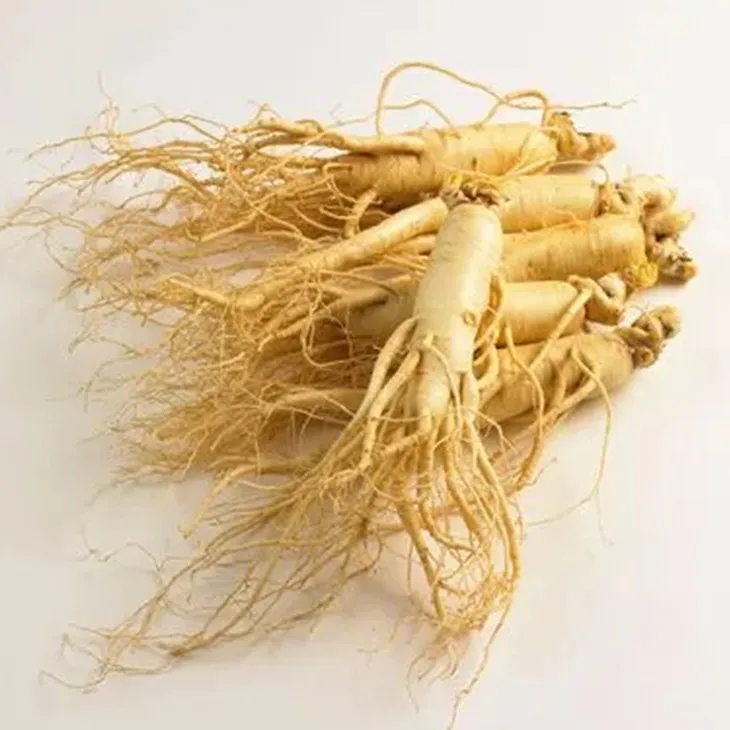
Incorporating Ginseng Root Extract into Daily Routines
Incorporating ginseng root extract into daily routines can be done in several ways.
As a Dietary Supplement
One of the most common ways is to take ginseng root extract as a dietary supplement. This can be in the form of capsules, tablets, or liquid extracts. When choosing a supplement, it is important to look for a high - quality product from a reputable manufacturer. The recommended dosage may vary depending on the individual's age, health condition, and the specific form of ginseng extract. Generally, it is advisable to start with a lower dose and gradually increase it if necessary, while monitoring for any potential side effects.
In Food and Beverages
Ginseng root extract can also be added to food and beverages. For example, it can be added to smoothies, teas, or soups. This not only adds a unique flavor but also provides the potential health benefits. When adding ginseng extract to food, it is important to note that cooking may affect the stability of some of the bioactive components. Therefore, it may be better to add it towards the end of the cooking process or use it in cold or minimally processed recipes.
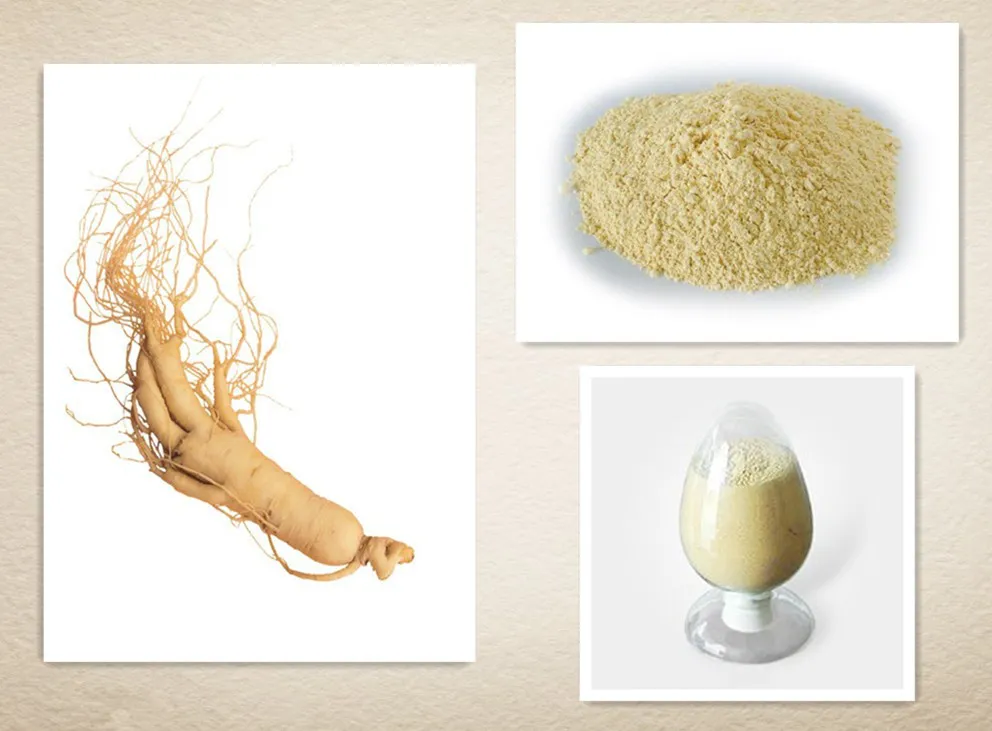
Comparison with Other Herbs for Treating Anxiety and Insomnia
There are other herbs that are also used for treating anxiety and insomnia, and it is important to compare ginseng root extract with them to understand its unique benefits.
Valerian Root
Valerian root is a well - known herb for treating insomnia. It has sedative properties that can help people fall asleep faster and improve sleep quality. However, valerian root may cause some side effects such as dizziness and grogginess in the morning for some people. In comparison, ginseng root extract not only has potential benefits for sleep but also for reducing anxiety, which is not the main focus of valerian root. Additionally, ginseng root extract generally has fewer reported side effects related to morning after effects.
Lavender
Lavender is often used in aromatherapy to relieve anxiety. It has a calming scent that can help relax the mind. While lavender can be effective for short - term anxiety relief through inhalation, ginseng root extract has the potential to address anxiety at a more physiological level. Ginseng can interact with the body's hormonal and neural systems to reduce anxiety in a more comprehensive way. Also, ginseng root extract can be consumed internally, providing a more long - lasting effect compared to the short - term relief provided by lavender inhalation.
Chamomile
Chamomile is another popular herb for both anxiety and insomnia. It has anti - inflammatory and calming properties. Chamomile tea is often consumed before bed to promote sleep. However, compared to ginseng root extract, chamomile may have a milder effect on anxiety. Ginseng root extract, with its complex bioactive components and multiple mechanisms of action, may be more effective for individuals with more severe anxiety or insomnia symptoms.
Conclusion
In conclusion, ginseng root extract has shown great potential as a natural remedy for treating anxiety and insomnia. Its long - standing traditional use in various cultures, combined with the scientific evidence of its bioactive components and their effects on hormonal balance and neural functions, make it a strong candidate. The availability of different forms of ginseng root extract allows for easy incorporation into daily routines, whether as a dietary supplement or in food and beverages. When compared to other herbs used for similar purposes, ginseng root extract has unique benefits that set it apart. However, it is important to note that while ginseng root extract may be a promising natural solution, it should not replace medical advice for those with serious anxiety or insomnia problems. Further research is also needed to fully understand all aspects of its effectiveness and safety.
FAQ:
What are the bioactive components in ginseng root extract that help with anxiety and insomnia?
Ginseng root extract contains various bioactive components such as ginsenosides. These compounds may influence the body's hormonal balance, for example, by interacting with the adrenal glands to regulate stress hormones. They also impact neural functions related to relaxation and sleep induction. Ginsenosides can potentially modulate neurotransmitter levels in the brain, like serotonin and gamma - aminobutyric acid (GABA), which are important for mood regulation and promoting sleep.
How can ginseng root extract be incorporated into daily routines for treating anxiety and insomnia?
There are different ways to incorporate ginseng root extract into daily routines. One common method is by taking it as a dietary supplement in the form of capsules or tablets, following the recommended dosage on the product label. It can also be consumed as a tea. To make ginseng tea, you can steep dried ginseng root in hot water for a few minutes. Some people also add ginseng root extract to smoothies or other beverages for a more convenient intake. However, it is important to consult a healthcare provider before starting any new supplement regimen, especially if you are taking other medications or have underlying health conditions.
What makes ginseng root extract different from other herbs used for anxiety and insomnia?
Ginseng root extract has unique properties compared to other herbs. Unlike some herbs that may only target one aspect of anxiety or insomnia, ginseng root extract's influence on hormonal balance and neural functions gives it a more comprehensive approach. For example, some herbs might mainly act on relaxing the muscles, while ginseng root extract can also affect the body's internal hormonal and neurotransmitter regulation. Additionally, ginseng has a long history of traditional use in many cultures for overall well - being, which is not always the case for other herbs. Its rich composition of bioactive components, such as the diverse ginsenosides, also sets it apart from other herbs used for similar purposes.
Is there any scientific evidence supporting the use of ginseng root extract for anxiety and insomnia?
Yes, there is scientific evidence supporting the use of ginseng root extract for anxiety and insomnia. Studies have shown that the bioactive components in ginseng, particularly ginsenosides, can interact with the body's systems related to stress response and sleep regulation. Research on animal models has demonstrated changes in neurotransmitter levels and hormonal profiles after ginseng root extract administration. Some human studies also suggest that ginseng root extract may have a positive impact on reducing anxiety symptoms and improving sleep quality. However, more research is still needed to fully understand its mechanisms and effectiveness.
Are there any side effects of using ginseng root extract for anxiety and insomnia?
While ginseng root extract is generally considered safe for most people when used appropriately, there can be some side effects. In some cases, it may cause digestive issues such as nausea, diarrhea, or upset stomach. It can also potentially interact with certain medications, so it is crucial to inform your healthcare provider if you are taking any drugs. High doses of ginseng root extract may lead to symptoms like insomnia (ironically, since it is also used to treat insomnia), restlessness, or increased blood pressure. Pregnant or breastfeeding women should be especially cautious and consult a doctor before using ginseng root extract.
Related literature
- The Effects of Ginseng on Stress - Related Disorders: A Review of Biological and Clinical Studies"
- "Ginseng and Sleep: A Review of the Current Evidence"
- "Bioactive Components of Ginseng Root and Their Therapeutic Applications for Anxiety Disorders"
- ▶ Hesperidin
- ▶ citrus bioflavonoids
- ▶ plant extract
- ▶ lycopene
- ▶ Diosmin
- ▶ Grape seed extract
- ▶ Sea buckthorn Juice Powder
- ▶ Beetroot powder
- ▶ Hops Extract
- ▶ Artichoke Extract
- ▶ Reishi mushroom extract
- ▶ Astaxanthin
- ▶ Green Tea Extract
- ▶ Curcumin Extract
- ▶ Horse Chestnut Extract
- ▶ Other Problems
- ▶ Boswellia Serrata Extract
- ▶ Resveratrol Extract
- ▶ Marigold Extract
- ▶ Grape Leaf Extract
- ▶ blog3
- ▶ blog4
- ▶ blog5
-
Organic Tongkat Ali extract powder factory.
2024-11-14
-
How to make powder with ashwagandha extract.
2024-11-14
-
Rosehip extract manufacturers from China.
2024-11-14
-
The best cat's claw extract in nature.
2024-11-14
-
Chinese Dandelion Leaf Extract Suppliers.
2024-11-14
-
Pueraria Lobata Extract
2024-11-14
-
Tongkat Ali Extract Powder
2024-11-14
-
Black Pepper Extract
2024-11-14
-
Acerola Juice Powder
2024-11-14
-
Stevia Extract
2024-11-14
-
Kupilu Extract
2024-11-14
-
Mulberry Extract
2024-11-14
-
Grape Seed Extract
2024-11-14
-
Curcumin Extract
2024-11-14
-
Agaricus Blazei Extract
2024-11-14





















